8 April 2025
Introduction
Ever watched a game where the weather became the unexpected MVP? You know, the kind that turns a sure victory into a nail-biting struggle? Weather in sports isn’t just about rain delays or wind-assisted shots—it can completely redefine the game. From torrential downpours turning fields into slip ‘n slides to blistering heat sapping players' energy, Mother Nature has a habit of making her presence felt.
In this deep dive, we’ll break down how weather conditions shaped a high-stakes game, shifting momentum, dictating strategy, and even altering the outcome. Buckle up, because this is a story of grit, adaptability, and survival. 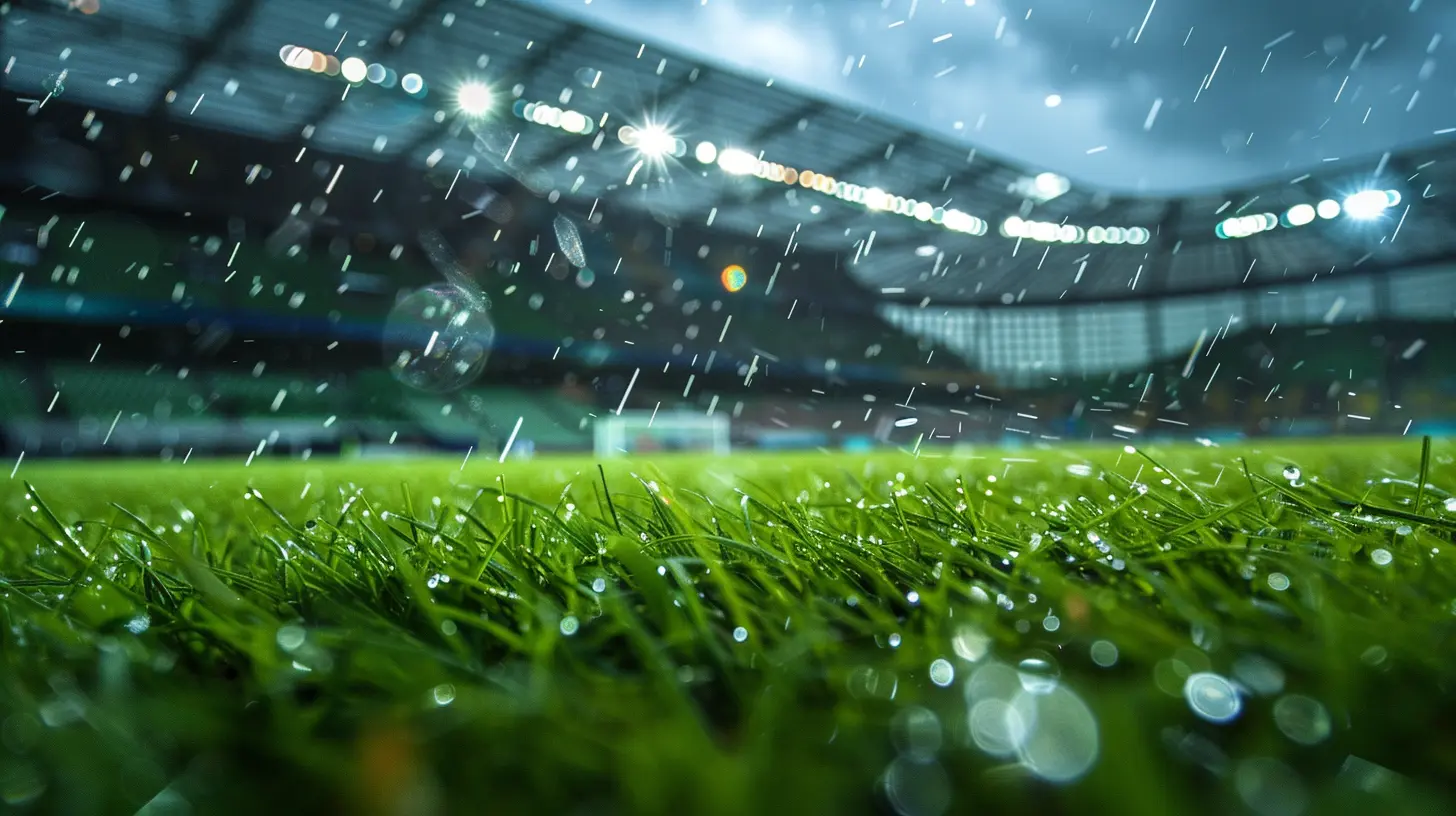
The Opening Minutes: A Calm Before the Storm
Everything started off smoothly. Players warmed up under an overcast sky, the kind that makes you wonder if you should bring an umbrella “just in case.” The temperature was moderate, the wind barely noticeable. Coaches had their tactics locked in, confident in their game plans.But then came the first warning signs—subtle at first, easily dismissed. A sudden drop in temperature. The eerie stillness in the air. A shift in wind direction that made flags flutter wildly. Something was brewing, but no one knew just how big of an impact it would have. 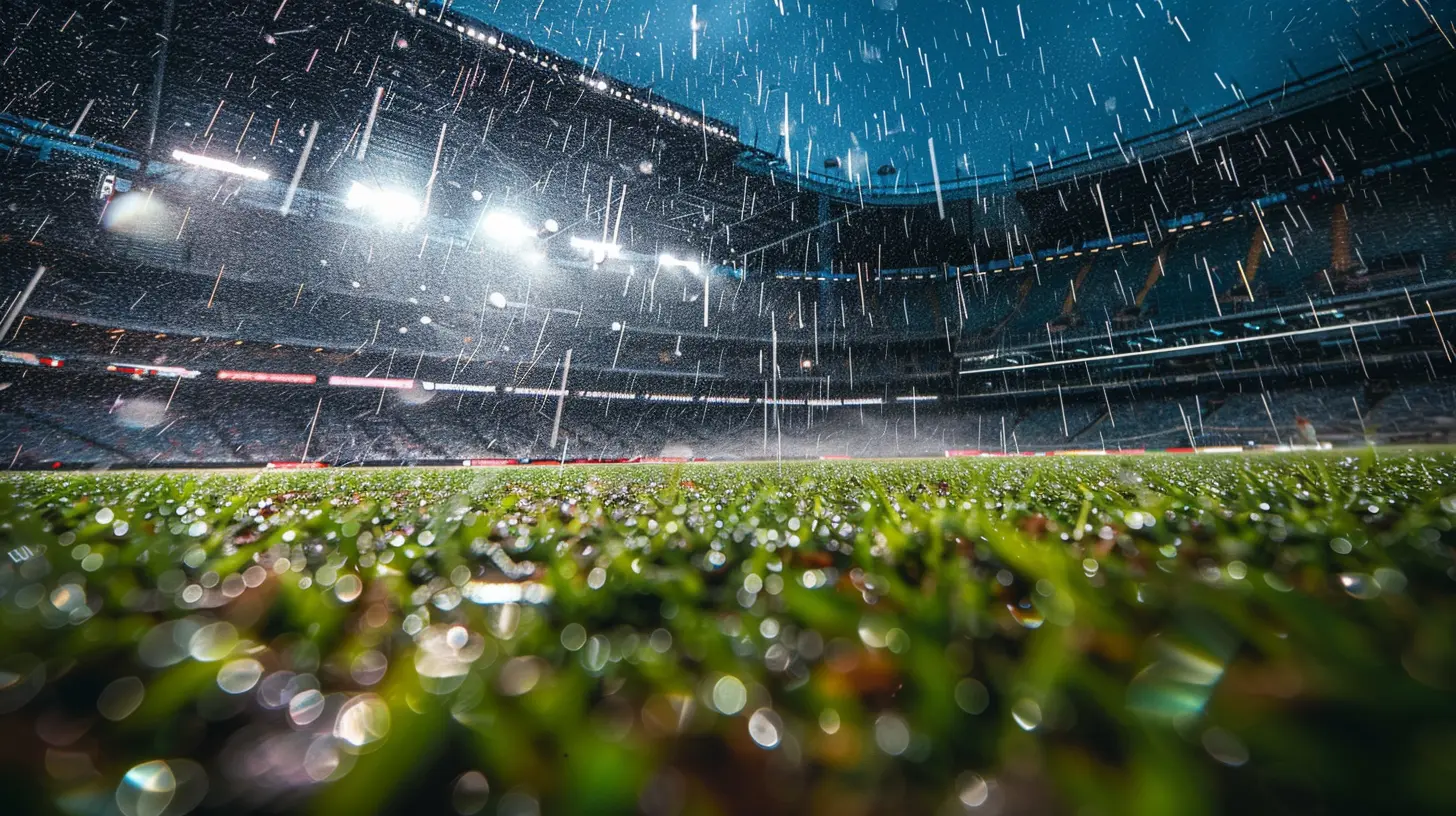
The Wind Factor: A Silent Game-Changer
As the match kicked off, the wind subtly began making its presence felt. What looked like routine passes turned unpredictable. Long balls that were supposed to drop perfectly at a striker’s feet suddenly veered off course. Goalkeepers struggled with their clearances, their carefully aimed kicks sent swirling like a rogue frisbee.One team, sensing the shift, adapted quickly. They kept the ball on the ground, stringing together short, precise passes. The other team? They stuck to their original game plan—long passes and aerial balls. Bad move. The wind turned their strategy into a game of chance, and slowly but surely, possession tilted in favor of the team that adapted faster. 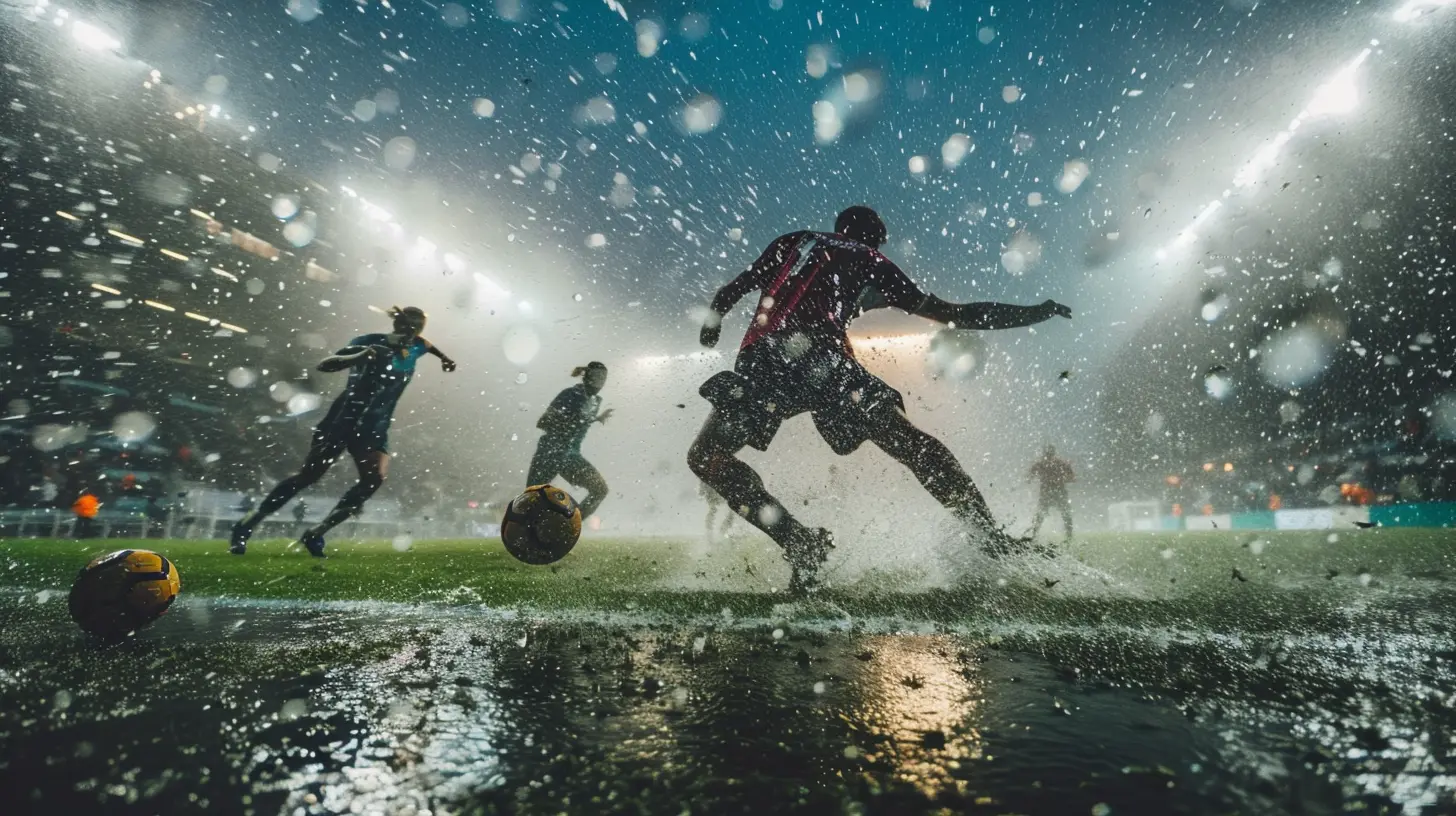
Rain, Mud, and Chaos
And then, as if on cue, the skies opened up. Not a light drizzle—oh no, this was a full-fledged downpour. The kind that drenches you to the bone within seconds. The pitch, once a pristine battleground, transformed into a mud pit. Players slid uncontrollably, tackles became ten times riskier, and the ball zipped across the wet surface unpredictably.Suddenly, speed became a liability. Defenders struggled to stay on their feet. Quick turns? Forget about it. The game now belonged to the physically dominant players—those who could maintain balance and muscle their way through the conditions.
One moment stood out—a breakaway run where a forward had only the goalkeeper to beat. He sprinted full-speed ahead, eyes locked on goal. But as he planted his foot to shoot, he slipped, his momentum sending him skidding past the ball. What should have been a goal turned into a comical yet heartbreaking blunder.
On the flip side, the rain played right into the hands of the underdog team’s goalkeeper. A normally straightforward shot slipped through his hands, but instead of bouncing away, the soaked ball stuck to the muddy ground, allowing him to recover in time. Luck? Maybe. But in these conditions, adaptability was the name of the game. 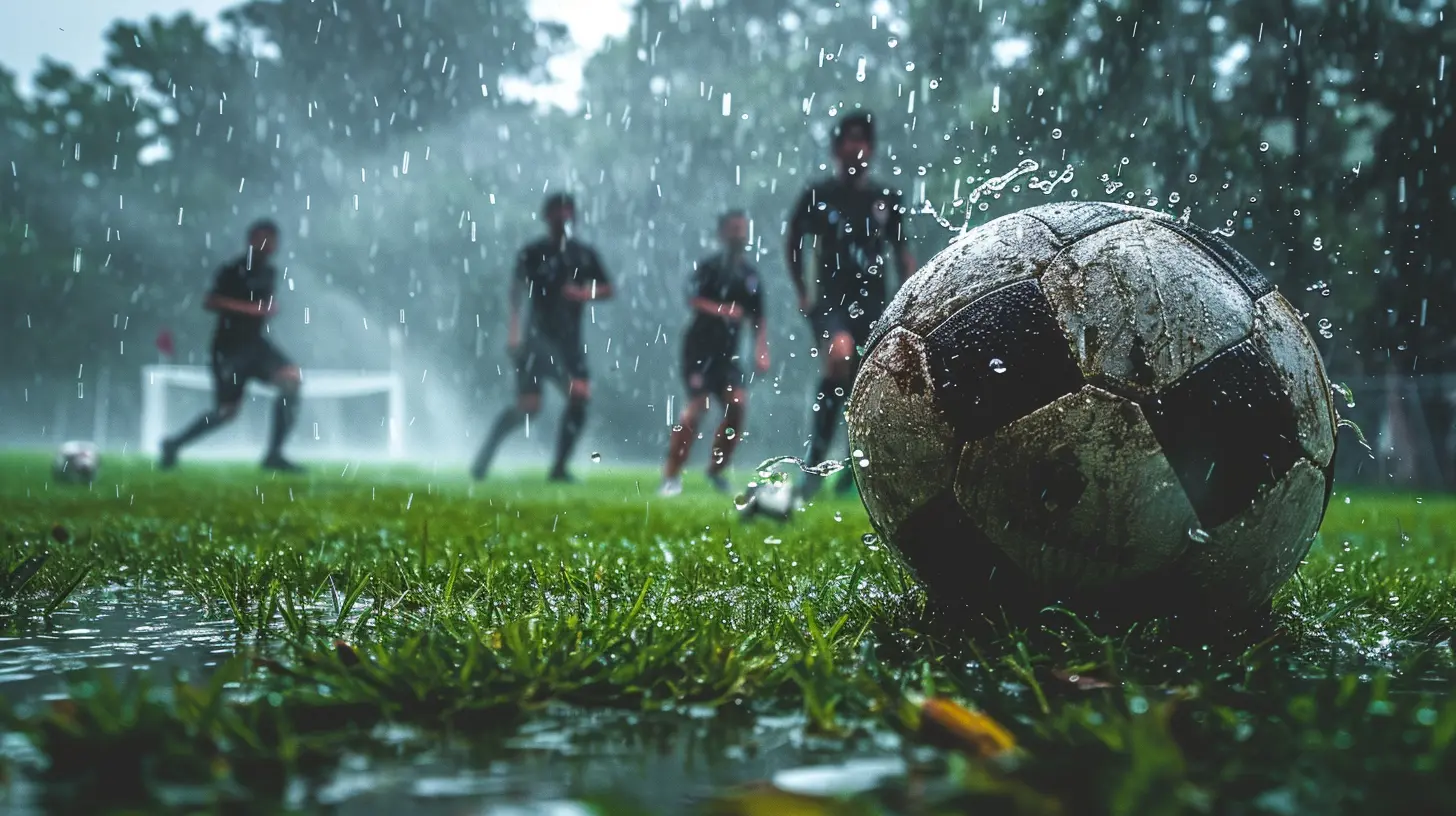
Energy Drain: The Heat Strikes Back
Just when players thought they had braved the worst of Mother Nature’s wrath, the rain eased up, and the humidity took over. The kind that makes every breath feel heavier. Jerseys clung to players’ bodies, drenched in sweat and rain. Fatigue set in, and suddenly, even the simplest sprints felt like a marathon.Dehydration became a concern. Substitutes warming up on the sidelines were no longer just tactical changes—they were lifelines.
One player, known for his endurance, thrived in these conditions. While others faded, he found a second wind. His secret? Smart conservation of energy. Early in the game, while others sprinted recklessly, he paced himself. Now, when it mattered most, he had the reserves to push forward while defenders wilted.
That moment defined the match. Late in the game, with tired legs all around, he made one decisive run. A perfectly timed through ball, a composed finish, and just like that—the game was won.
Post-Match Reflections: A Battle Beyond Skill
As the final whistle blew, the exhausted players collapsed onto the wet, muddy turf. The scoreboard told one story, but the real battle had played out between the players and the elements.This match wasn’t just about which team was better on paper—it was about who adapted better. Who embraced the chaos rather than fought against it. The weather had thrown everything at them, and only the most resilient came out on top.
In the end, tactics, skill, and preparation matter—but sometimes, the biggest factor is something no one can control. And in this case, the weather didn’t just shape the match—it decided it.
Final Thoughts
Nature is the ultimate wildcard in sports. You can plan every detail, analyze every opponent, and prepare extensively, but when the sky decides to turn against you, all bets are off. Some see it as an obstacle; others see it as an opportunity. The greats? They don’t just weather the storm—they use it to their advantage.So next time you’re watching a game and the conditions take a turn for the worse, don’t just focus on the players—watch how they respond. That’s where the real battle is won.


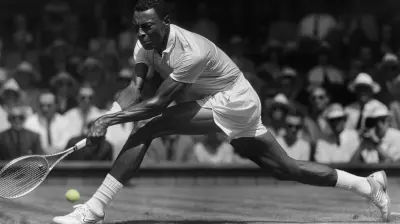




Brooks Hurst
In tempest's grip, the players danced, Nature's fury, their spirits pranced. Each drop and gust, a test of will, In muddy dreams, their hopes stood still. Through trials fierce, they forged their fate, Resilience blooms; they captivate.
April 19, 2025 at 5:08 AM